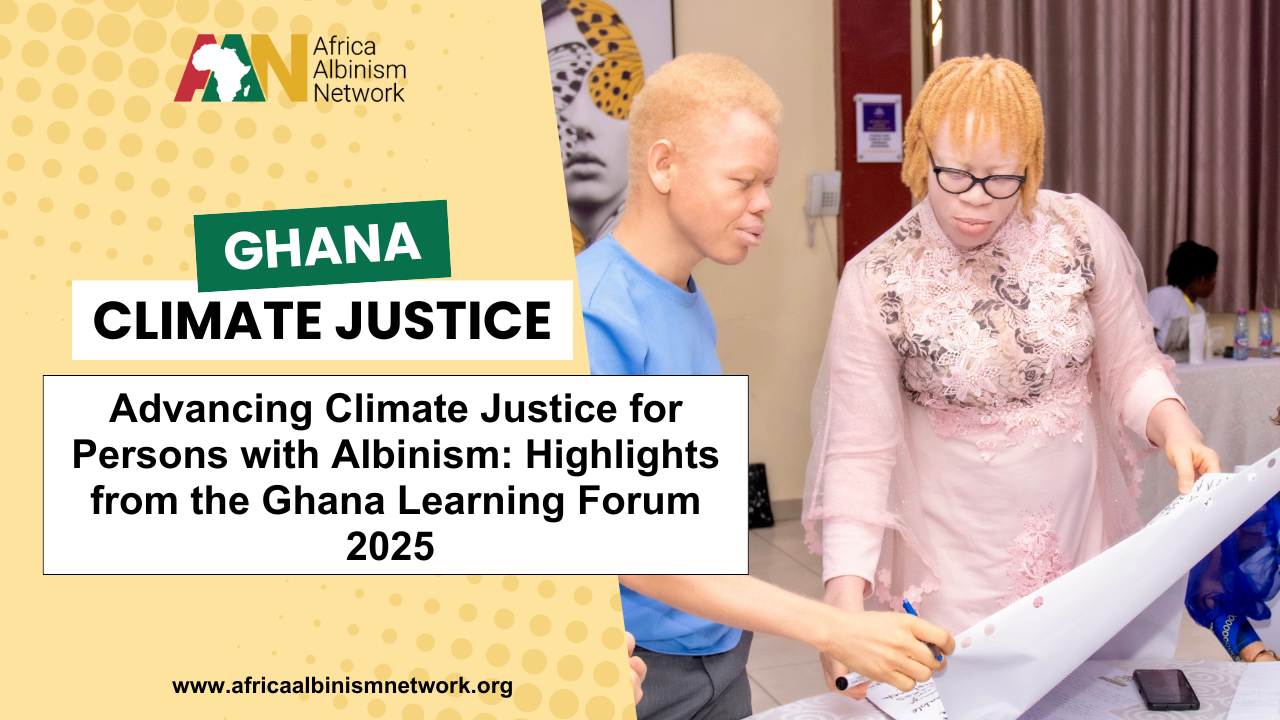Imagine walking to school daily, your backpack over your shoulder, the sun’s harsh rays on your face. Now, picture facing this journey with courage so profound that it becomes a daily act of bravery, not because of the academic challenges that lie ahead but due to the relentless discrimination you face. This is the reality of many people with albinism across Africa.
“Furthermore, we urge member states to embrace and implement the AU Plan of Action on Albinism in Africa – a critical step toward a more inclusive and supportive environment.”
In a statement presented on its behalf by Baidon Chandipo, a human rights defender and the Executive Director of the Albinism Foundation of Zambia (AFZ). The Africa Albinism Network (AAN) applauds the efforts of the Independent Expert on Albinism, whose recent report sheds light on the unique challenges faced by people with albinism. While progress is being made, there’s an urgent need for collective action to dismantle the barriers that impede their access to quality education and hinder their full participation in society.
Download the complete copy here or read the statement below (in English only).
The challenges are multifold. Inadequate infrastructure, attitudinal barriers manifested in normalized name-calling and bullying, and the staggering statistic of a 40 percent dropout rate among school-aged children with albinism in Namibia are stark reminders of the uphill battle these individuals face. Education, a fundamental hu rights for all, becomes a battleground for courage against the fear of physical harassment, relentless name-calling, violence, and the intensified impact of sun exposure, which increases the absorption of UVB and UVA rays, exacerbated by ongoing climate change.
To address this crisis, AAN calls upon member states in developing countries, particularly those in Africa where we work, to acknowledge and actively implement the recommendations outlined in paragraph 86 of the current report.
Furthermore, we urge member states to embrace and implement the AU Plan of Action on Albinism in Africa – a critical step toward a more inclusive and supportive environment. The Africa Disability Protocol, when ratified by member states of the AU, will further solidify the commitment to ensuring the rights and well-being of people with albinism.
Thank you.


